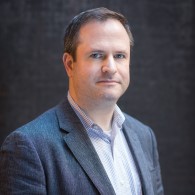
"Museums of Words: Holocaust Museums in Literature"
Professional Background
Samuel Spinner is currently the Zelda and Myer Tandetnik Assistant Professor of Yiddish Language, Literature, and Culture at Johns Hopkins University. He is completing Jewish Primitivism, a book on the relation of aesthetic and ethnographic figurations of Jewish identity in modern German and Yiddish culture. At the Mandel Center for Advanced Holocaust Studies, he is researching a book addressing the connections between museological and literary techniques of Holocaust representation. His work has appeared in PMLA, MLN, and German Quarterly. Dr. Spinner is a co-editor of “German Jewish Cultures,” a book series published by Indiana University Press and serves as an editor of the online Yiddish Studies journal In Geveb.
Fellowship Research
Dr. Spinner was awaded the 2019-2020 Sosland Fellowship at the Jack, Joseph and Morton Mandel Center for Advanced Holocaust Studies for his research project, “Museums of Words: Holocaust Museums in Literature." Drawing upon Museum resources, his project examines how literature did the work of commemoration and representation that would eventually be taken over by Holocaust museums. Indeed, a key contention of the project is that it was literature that first imagined how museums could or should deal with the Holocaust. Dr. Spinner’s research at the Mandel Center focuses on the Yiddish book series Dos poylishe yidntum (Polish Jewry) published in Buenos Aires in the first two decades after the Holocaust, but includes adjacent literary projects of commemoration. The aim of his project is to explore the ways in which Holocaust literature offered both a vision for and a critique of the methods and conventions that would come to characterize Holocaust museums.
